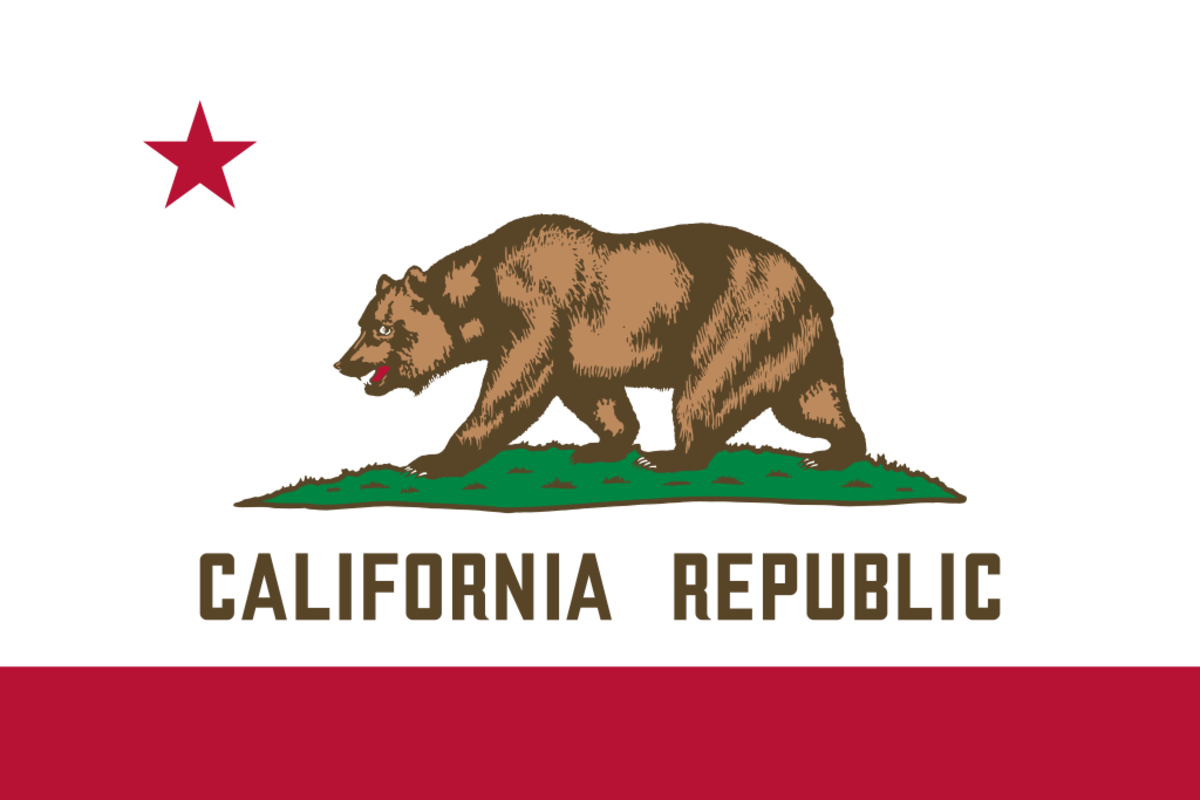California Workers’ Comp Laws

If you have been injured at work, you are not alone. Since 2010, California hasn't seen fewer than 600,000 workplace injuries, with strains, sprains, and lacerations among the most common. These injuries can be life-altering. However, a workers’ compensation claim can ease the stress of an injury, helping you afford treatment and sustain you during your recovery period. If you plan on filing a workers' comp claim in California, it's important to understand how the process works beforehand.
Here we provide the information needed to file a workers' compensation claim, explain how benefits are calculated, and guide you toward further resources if you have been injured while working.
California No-Fault Workers’ Comp Laws
California is a no-fault state, meaning that an employee does not have to prove negligence on behalf of their employer in order to collect workers’ compensation benefits. Regardless of fault or negligence, employees are entitled to receive benefits in the event of an injury.
The no-fault rule does not mean that every workplace injury will automatically result in a payment. Your company’s insurer might deny your claim if they feel that your injuries are not sufficiently severe to be covered, are related to a pre-existing condition, or you failed to completely and accurately fire your paperwork. However, you can appeal a denial by filing an Application for Adjudication of Claim with the Division of Workers’ Compensation.
California Workers’ Comp Posting Requirements
California’s Division of Workers’ Compensation requires that businesses post a notice about workers’ compensation in their workplace. The document, written by the DWC, informs employees about their workers’ comp benefits, best practices for dealing with a workplace injury, and contact information for their company’s claims administrator. It has to be positioned so that employees can clearly see it.
If you cannot find the notice in your workplace, it may mean that your employer is not following the rules. The DWC considers this a misdemeanor and may fine up to $7,000 for such an offense.
California Workers’ Comp Retaliation Laws
Your employer cannot penalize you for exercising your rights to workers’ compensation. An employer who reduces an employee’s hours or pay or fires or threatens to fire an employee as retaliation for filing a workers’ comp claim is in violation of California’s Labor Code.
This law concerns workers other than the person filing a claim. Coercing other employees to discriminate against an employee filing a claim is illegal, as is retaliating against an employee for testifying in another’s workers’ comp claim.
Violating this code is a misdemeanor offense, and an employer who does so can owe the wronged employee additional damages in their workers’ comp settlement.
An employee who has suffered retaliation as a result of filing or helping another employee pursue a workers’ comp claim can report a labor violation to the Department of Industrial Relations.
Choosing a Doctor After a Workplace Injury
To receive a workers’ comp claim, you will have to have a doctor treat your injuries and determine when you can safely return to work. A professional diagnosis will be essential to the success of your claim. However, there are a few regulations determining who can treat you after a workplace injury.
If you have predesignated a physician with your employer, you can receive treatment from that physician. To predesignate, you must provide your employer with that doctor’s name and address prior to your injury. If you have a trusted primary care physician, predesignating them with your employer as soon as possible can help protect you in the case of a workplace accident.
If you do not have a predesignated physician, your company’s workers’ comp might require you to select one from their own medical provider network or MPN. An MPN is a group of physicians authorized by an insurer and approved by the Division of Workers’ Compensation to treat workplace injuries.
If your employer does not have an MPN or health care organization (HCO) and you do not have a predesignated doctor, your claims administrator will choose your physician for you. You will have to receive treatment from that doctor for 30 days after your injury, after which you will be able to choose your own physician for further treatment.
Working After an Injury
Depending on the severity of your injury, you might not be able to work while recovering. If you are able to work, you might not be able to work as many hours or perform all of your usual tasks while recovering. Your physician will inform your employer of how much time off you will need to recover and what tasks you will be unable to carry out before you heal. Because their diagnosis will be important to your well-being at work, pre-designating a trusted doctor with your employer will be a significant benefit if you ever have to file a workers’ comp claim.
If your employer attempts to force you to do work that violates your doctor’s recommendations, they are in violation of the labor code prohibiting retaliation. Before carrying out those orders, make sure that they are aware of your diagnoses and recommended work limits. If they continue to insist, you can file a report with the DIW.
Disputing a Doctor’s Report
Your physician’s diagnosis and recommendations are key factors in determining the benefits you receive and the type of work you can be expected to perform after your injuries. If you feel that a doctor’s report does not accurately represent your injuries, you have the right to dispute it.
If your doctor is part of your company’s MPN or an HCO, you can request a second and third opinion from other doctors within that same network. If you disagree with all three opinions and are part of an MPN, you can request an independent medical review. If your physician belongs to an HCO, you can send a letter to your claim’s administrator requesting a grievance procedure.
If your physician is not part of an MPN or HCO, you can either get a second opinion or notify your claims administrator in writing. Please note that you should send these letters within 30 days of receiving your doctor’s opinion if you are not being represented by an attorney and within 20 days if you are.
California Workers’ Comp Insurance Requirements
California requires that all businesses provide employees with workers’ comp coverage. This requirement applies to companies of any size, including those with a single employee. Independent contractors and sole proprietors do not have to provide themselves with workers’ comp, although they have the option to do so.
California considers foregoing workers’ comp coverage a criminal offense. A business owner who fails to provide employees with coverage can face a fine of at least $10,000, an additional fine of at most $100,000, and/or a maximum one-year jail term. They also open themselves up to personal injury lawsuits.
Employers must pay for the full cost of insurance themselves. They cannot deduct from employees’ paychecks for workers’ comp coverage.
California Workers’ Compensation Benefits
California workers’ comp coverage offers workers a number of benefits based on the short- and long-term effects of workplace injuries. Workers ' comp will cover all medical care related to your workplace injuries, whether emergency or non-emergency. If your injuries make it difficult or impossible for you to work, you will also receive disability benefits, which usually amount to two-thirds of the wages your injury causes you to lose. For example, if you previously earned $3,000 a month, and your injuries prevent you from working more than half your regular hours, you could earn temporary partial disability (TPD) payments amounting to $1,000 per month. If you were completely unable to work, you could earn $2,000 per month in temporary total disability (TTD) payments.
In some unfortunate cases, your physician might decide that your injuries will permanently alter your ability to work. If so, they might recommend permanent disability (PD) benefits. Your doctor will fill out a permanent and stationary (P&S) report detailing the ways that your injuries will impact your earning ability. This report will give your injuries a rating of 1-100 based on how completely they will prevent you from working. Your PD settlement will be based on that score, including compensation for lost earning ability and future medical care.
If you have permanent disabilities, you may also receive supplemental job displacement benefits (SJDB). SJDB comes in the form of a voucher for up to $6,000, which you can put toward education or training for future work.
Finally, the dependents of someone who dies as a result of a workplace injury are eligible to receive death benefits. These include compensation for up to $10,000 in burial costs and continuation of the deceased’s disability benefits until their youngest child or other dependent turns 18.
What Is the Statute of Limitations in California for Workers’ Comp Claims?
Generally speaking, you have the best chance of maximizing your workers’ compensation benefits if you file a claim as soon as possible after your injury. Failure to file a workers’ comp claim within 30 days of your injury could make you ineligible for benefits. Waiting too long to file may also give the impression that your injuries were not serious enough to warrant immediate attention.
Your employer and their insurer also have a time limit. If they intend to deny your claim, they must do so within 90 days of receiving it. According to state law, if you have not received any response regarding your claim within the specified time frame, it is considered approved.
Legal Resources for Injured Workers in California
Workers’ compensation is only one tool available to Californians who have been affected by a workplace injury. There are several state and nonprofit organizations that can help you through the difficulties that come with a serious workplace injury, including financial stress and the need to adjust to living with a disability.
Disability Rights California
A disabling injury, especially a permanent one, brings with it a host of unexpected challenges. Disability Rights California is an organization that advocates on behalf of disabled people. With their help, you can learn about your legally protected rights and the resources available to you as a disabled Californian.
On their website, you can learn about state and federal programs that can help you get assistive technology, laws that protect you from discrimination, your right to have a service animal, and other topics relevant to someone with disabilities. You can also stay current on new legislation affecting disabled people.
California Department of Rehabilitation
California’s Department of Rehabilitation operates several programs aimed at helping disabled Californians live independent lives. They provide services for people with disabilities who are looking for employment, accommodations at their current job, or accessible living spaces. They also offer specialized services for people who are blind, or Deaf or Hard of Hearing.
If you are having trouble living on your own after suffering a disabling injury, the DoR’s Independent Living Centers can help connect you with in-home assistants, assistive technology, independent living counseling, or accessible low-income public housing.
CalFresh
If your injuries have made it difficult for you to earn wages, you might be feeling some economic stress. CalFresh, a food stamps program that helps low-income Californians afford healthy foods, can ease some of this anxiety. The California Department of Social Services estimates that as many as one-third of Californians are eligible for CalFresh benefits. If you are dealing with a reduced salary, you may be eligible.
You can apply for CalFresh benefits online, in person, or by phone at 1-877-847-3663. In addition to cash benefits, CalFresh also provides a restaurant meals program, employment and training, and education about nutrition and exercise.
Visit: https://www.cdss.ca.gov/calfresh
Covered California
Even after receiving workers’ comp benefits, dealing with a serious injury can be a major financial burden for someone without good health insurance. Covered California is a state-operated marketplace for insurance plans. If you are unhappy with your current insurance, they can help you find a plan that better suits your needs.
Covered California works with major insurers, and their website allows you to compare different plans to find the one that works best for you. If you are having difficulty affording healthcare, you could receive discounted insurance under Medi-Cal.
Expertise.com StaffAuthor
Step into the world of Expertise.com, your go-to hub for credible insights. We don't take accuracy lightly around here. Our squad of expert reviewers, each a maestro in their field, has given the green light to every single article you'll find. From rigorous fact-checking to meticulous evaluations of service providers, we've got it all covered. So feel free to dive in and explore. The information you'll uncover has been stamped with the seal of approval by our top-notch experts.




